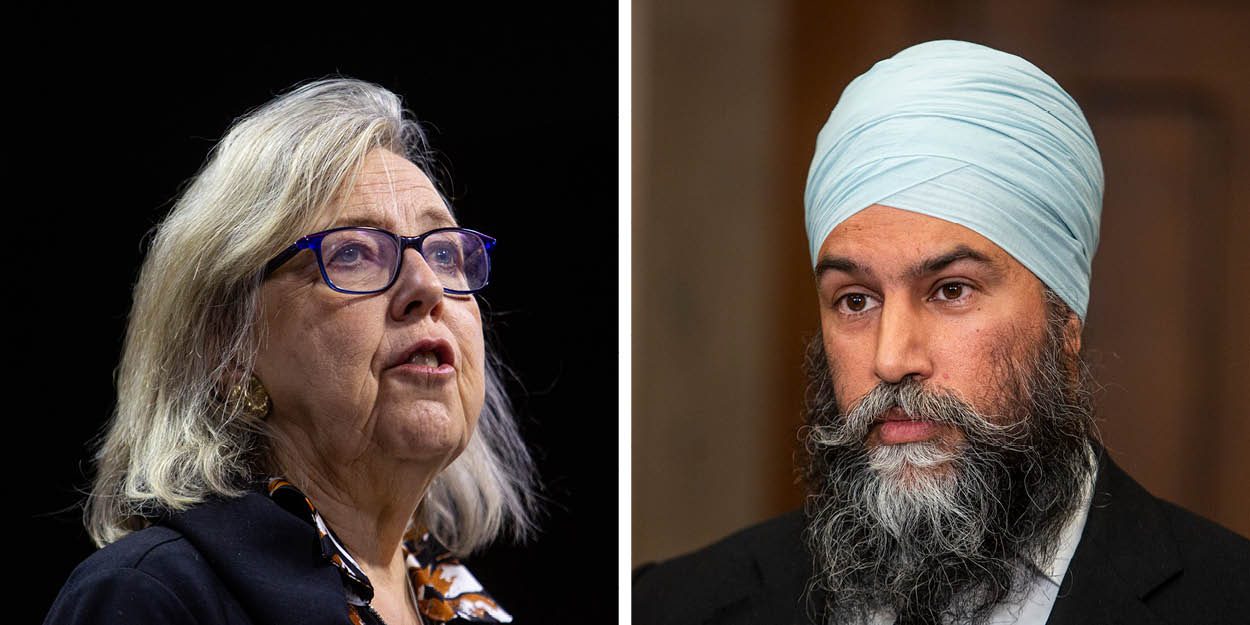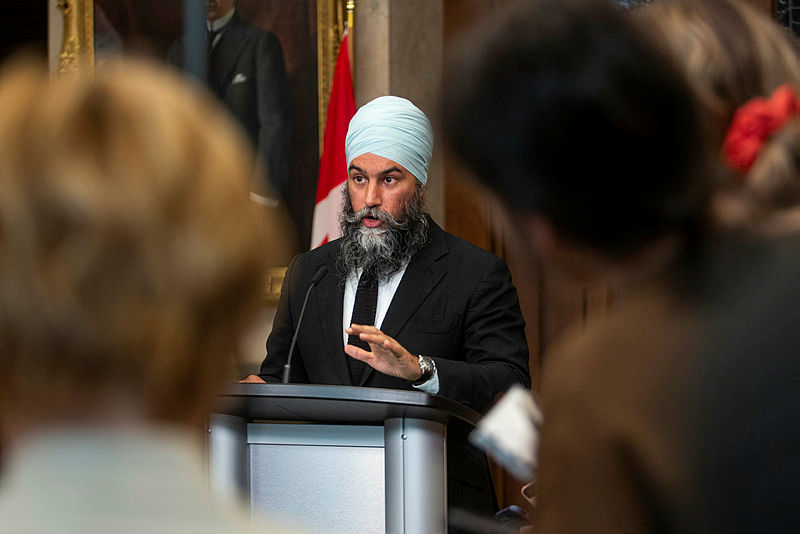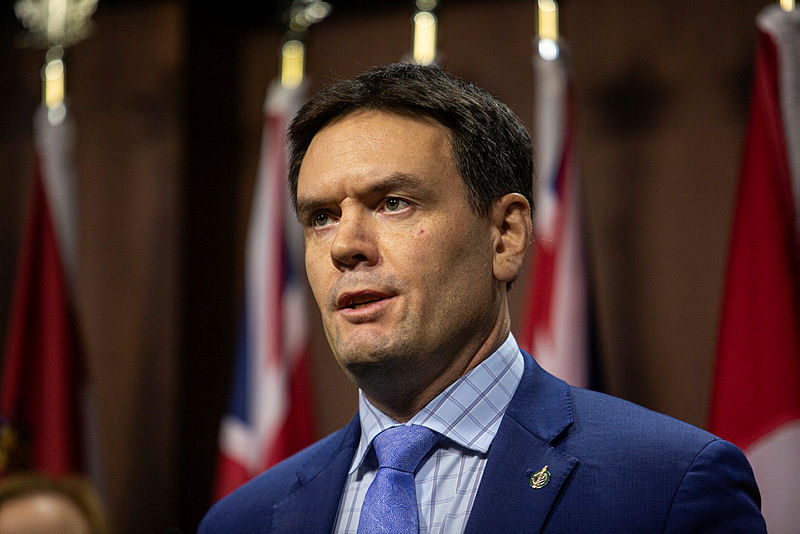‘Loose’ nominations need tightening to combat foreign interference, say political players

Party leaders who have so far read the unredacted version of a recent bombshell foreign interference report are saying more tools are needed to help protect Canada’s democratic processes, with Green Party Leader Elizabeth May arguing solutions should include putting nominations and party leadership races under the purview of the Canada Elections Act.
“We do have a problem, and we need to face it, and I think we’ll do a better job as Canadians and as members of parliament in protecting democracy in Canada if we’re able to set partisanship to the side,” said May (Saanich-Gulf Islands, B.C.) in an interview with The Hill Times on June 14. “Let’s agree we’re going to tighten up our rules on our internal party processes—around nomination contests, around leadership races—because those two areas have been identified by the committee as particular points of vulnerability where hostile foreign actors can interfere or gain influence in our party process.”
The National Security and Intelligence Committee of Parliamentarians (NSICOP) tabled a redacted report in the House on June 3, which examined intelligence on foreign state interference in Canada’s democratic processes over the past six years, from Sept. 1, 2018, to Nov. 7, 2023.
The report cited “particularly concerning examples of behaviour by a few parliamentarians,” and stated the committee has seen troubling intelligence that some parliamentarians are “semi-witting or witting” participants in the efforts of foreign states to interfere in this country’s domestic politics.
After reading an unredacted version of the report, May told reporters on June 11 that she has “no worries about anyone in the House of Commons,” but added that “there are clearly threats to Canadian democracy from foreign governments,” and suggested that other party leaders should re-focus on what steps are necessary to better protect democracy in Canada.
In contrast to May’s reaction, NDP Leader Jagmeet Singh (Burnaby South, B.C.) told reporters on June 13 he was more alarmed and disturbed after reading the uncensored report.
Singh told reporters that “what we need to do is use the tools we have to get to the bottom of this.”
“I want to continue to push for more solutions. I want to push for more transparency, I want to push to learn more, so we can have better solutions,” he said.
The Hill Times reached out to Singh for additional comments on June 13 following his press conference, but did not receive a response prior to deadline.
Singh told reporters that a number of MPs have knowingly provided help to foreign governments to the detriment of both Canada and Canadians, and there are politicians at all levels of government who have benefited from foreign interference.

“Some of this behaviour absolutely appears to be criminal, and should be prosecuted,” said Singh. “This government has received multiple repeated warnings and recommendations, and has not acted. Today, Canada is vulnerable to foreign interference, and this weakens our democracy and the confidence of Canadians. I believe we must find a way to let MPs who are named in this report know that we know what they’re up to. I believe this can be done in a way that doesn’t compromise national security.”
May told The Hill Times that she doesn’t think that Singh’s response to the unredacted report is any different from her own.
“There are not—and he confirmed that—not parliamentarians currently serving who are named or identified … as having done things that are overtly against Canada’s interests. He used the words ‘witting’, or ‘semi-witting,’ just as the report had.
When asked if anything in the unredacted report connected to him personally, Singh said “I was a target,” but did not provide additional details.
May said she would like to highlight that it is not MPs in particular who are suddenly under the suspicion of betraying Canada.
“We have foreign interference and foreign influence being inserted at a lot of levels, including municipal and provincial,” she said. “We also know, as parliamentarians, that when you read a report like this, when it says parliamentarians in every party have been targets, it doesn’t mean that the foreign party government that has targeted a member of parliament has been successful.”
According to the NSICOP report, the committee members were “disturbed to learn how easily foreign actors take advantage of loopholes and vulnerabilities in political party governance and administration to support preferred candidates.”
“This is a critical gap because a number of ridings in Canada are considered ‘safe seats’ for one party or another, so a successful nomination may amount to a candidate’s election. Because the number of votes required to sway riding nominations is so small, they are a useful avenue for foreign states to engineer the election of their preferred candidate,” reads the report.
To help address this gap, the report includes a recommendation to consider including the party nomination processes within the framework of the Canada Elections Act, which would allow Elections Canada and the Office of the Commissioner for Canada Elections to monitor nominations across the country.
May told The Hill Times in an interview on June 12 she is impressed with NSICOP’s work, and supports all the recommendations in the report, including bringing the nomination process within the framework of the Canada Elections Act.
“It’s clear that, where foreign actors and foreign governments have attempted to interfere with Canadian democracy and influence Canadian democracy, that the loose rules around nomination contests is a problem,” said May.
As an example, May cited a case study in the report, which stated that, according to the Canadian Security Intelligence Service (CSIS), alleged that the People’s Republic of China “had a significant impact” in getting Han Dong, currently an Independent MP, nominated as the Liberal Party’s federal candidate in the riding of Don Valley North, Ont., in 2019. According to the report, China supported Dong’s nomination vote by busing in between 175 to 200 international Chinese students who were told to vote for Dong to maintain their student visas.
Dong has denied any involvement, and said he was not offered or informed of any help from a foreign country either during his nomination or during his election campaign, nor would he have accepted any such help, as reported in CBC News on March 22, 2023.
May said a regime should be created where foreign interference is made illegal as opposed to just being against party rules.
“One of the things [the committee] found was the People’s Republic of China violated the Liberal Party’s rules around nominations races. What can you do with that? Nothing. Was the Liberal Party going to bar People’s Republic of China operatives from coming to their nomination meetings? There’s very little room for sanctions unless we tighten up our rules,” said May. “Something that violates party rules is of interest to people who belong to that party, but it doesn’t do anything to discourage a foreign government from interference.”
May said she also would put more emphasis on the federal ethics commissioner taking action against MPs who violate their oath of allegiance.
“We swear an oath of allegiance to Canada when we become MPs, and it’s not a flexible thing. It’s not a ritual without meaning. But … I know some MPs have treated it as a ritual without meaning,” said May. “We shouldn’t have to really draw people’s attention to the fact that that’s your job when you’re a Member of Parliament for Canada, is to have loyalty to Canada, and true allegiance only to Canada. That shouldn’t have to be said.”
NDP caucus chair Alistair MacGregor (Cowichan—Malahat—Langford, B.C.), who is also his party’s public safety critic, told The Hill Times on June 12 that the NSICOP report “landed with the force of a bomb” upon its release.

“[The NSICOP report] is a warning that our foreign adversaries find Canada to be a low-risk, high-reward environment to operate in, and I think it’s incumbent upon all of us to do what we can to counter that threat, and if that includes making sure that our electoral processes are stronger, than I’m certainly in favour of that, generally,” said MacGregor.
The report noted that nomination processes in Canada are governed by the different rules of each political party, and breaking these rules is not illegal. Amendments to the Criminal Code and the Security of Information Act should provide clear and modern definitions of foreign interference to help clarify what activities do and do not qualify as threats, according to the report.
MacGregor said that Bill C-70, the Countering Foreign Interference Act—currently in third reading in the House—could provide those needed amendments to the Security of Information Act.
The bill, introduced by Public Safety Minister Dominic LeBlanc (Beauséjour, N.B.) on May 6, includes a proposal to create a Foreign Influence Transparency Registry, which would require anyone acting on behalf of a foreign power seeking to influence government processes to register. The bill would also amend the Security of Information Act to make it an offence to knowingly engage “in surreptitious or deceptive conduct at the direction of, for the benefit of or in association with a foreign entity for a purpose prejudicial to the safety or interests of the state,” and also an offence to engage in “surreptitious or deceptive conduct” for a foreign entity, with the intent to influence the exercise of a democratic right in Canada.
“I think [Bill C-70] is also a response to what NSICOP highlighted in their report. Our foreign adversaries find this country to be a very easy place to operate in, and it’s about time that we countered that threat and brought our laws up to speed so that our intelligence and law enforcement agencies have the tools that they need to effectively counter the threat on our behalf,” said MacGregor.

Stephanie Carvin, a Carleton University professor and former CSIS intelligence analyst, told The Hill Times that the NSICOP report wasn’t the first to raise concerns about vulnerability within Canada’s nomination process for political candidates. A report released on May 3, 2024, by Justice Marie-Josée Hogue stated that the question of nomination processes, and their potential vulnerability to foreign interference, “is undoubtedly a question that will have to be carefully looked at” going forward.
“Whatever action it takes, something needs to be done to protect these nomination processes, because they have been highlighted now in multiple reports as a source of vulnerability. I can’t say specifically [if] it should be the Canadian Elections Act or the office of the Elections Commissioner, or whatever it should be, but it should be done,” said Carvin. “Political parties could be taking more steps now to make these changes, and the first thing is to read the [unredacted] report.”
jcnockaert@hilltimes.com






 LICENSING
LICENSING PODCAST
PODCAST ALERTS
ALERTS













